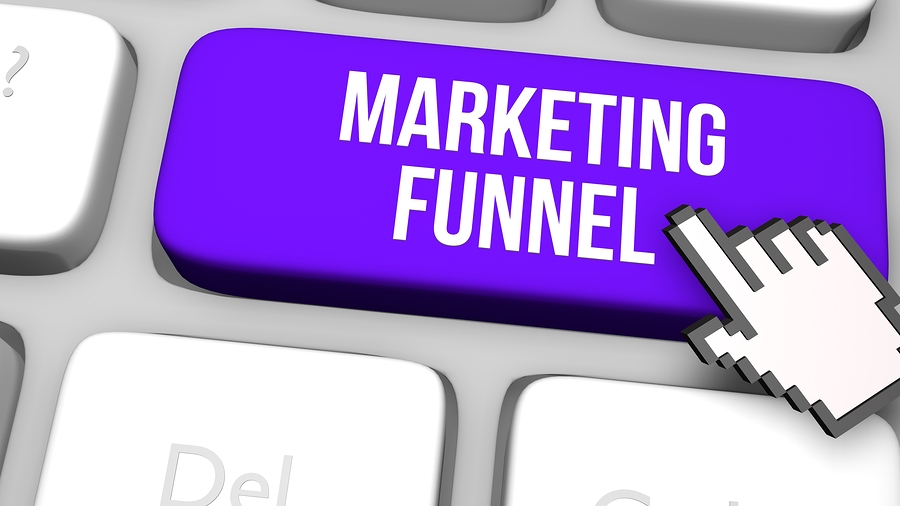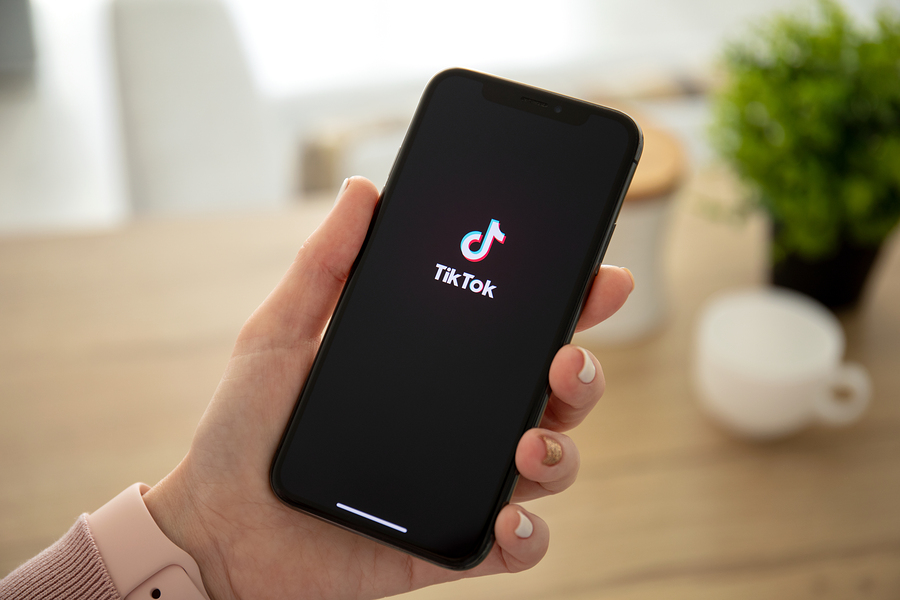In the fast-moving digital age, traditional marketing tactics can no longer be relied upon to deliver sales. Nowadays, a strategically planned content marketing funnel is needed to raise brand awareness and boost your bottom line.
By using a content marketing funnel, businesses benefit from increased engagement with their products and services and they gain measurable marketing insights into the behaviour and shopping habits of both existing and potential customers.
By targeting specific marketing activity at different stages of the online user journey, companies can engage with their target market to qualify, nurture, and convert potential leads into paying customers.
Whatever the size of your business and whatever type of industry your business operates in, a content marketing funnel is vital in getting to know your target market’s wants and needs, and successfully delivering them.
In this article, the Maxweb team considers:
- what a content marketing funnel is
- what the different stages within a marketing funnel are
- why content is (and always will be) king or queen
- where content marketing goes
- the benefits of a content marketing funnel
What is a content marketing funnel?
A content marketing funnel reflects the stages visitors to your website go through – from browsing, making an initial enquiry, and completing a purchase. Put simply, a content marketing funnel is a tool used to convert traffic into sales using engaging and strategically placed content.
Typical examples of content used in a content marketing funnel includes website copy, blog posts, e-newsletters, white papers, e-books and infographics. Depending on the stage the lead is at in the funnel, different content is used to maximise engagement with your brand or product. Each piece of content plays a key role in attracting new customers and encouraging potential leads to make a purchase.
A successful content marketing funnel breaks down the customer journey into a number of steps, from the ‘awareness’ stage where they first come across your business and its offerings, to the ‘purchase’ stage where they are ready to make a commitment to buying your product. Some funnels also include a ‘post-sales’ stage aimed at building customer retention and building brand loyalty.
The most important step in a content marketing funnel is the first one – driving traffic to your website. This is typically achieved by creating Google-friendly, SEO-optimised content such as blog posts, product pages, keyword-optimised landing pages and downloadable white papers. As prospective leads flow through your funnel, your marketing will become more personalised based on the information you collect from the customer via tools such as enquiry forms, promotional pop-ups and mailing lists.
What are the different stages of a marketing funnel?
A typical content marketing funnel includes the following four stages:
- Attract
This is when a potential lead or new customer initially finds your business
- Convert
This is when a qualified new customer decides to find out more about your products or services
- Close
This is when the lead researches any additional information needed to make a purchase before deciding to make that all important purchase
- Delight
This is when a satisfied customer becomes a brand advocate
Content is king
With so much online competition, trustworthiness and brand reputation is a big factor to gaining respect from both your existing customers and potential new ones. Even if you have the perfect product or service, if your target audience isn’t aware of – or doesn’t believe in – your brand then they won’t be incentivised to make a purchase.
Producing engaging, high-quality content is one of the best ways of becoming a trusted voice in your industry. However, it’s not always as easy as you might think.
Sporadically writing blog posts and sharing them on social media alone isn’t likely lead to an immediate spike in traffic and sales. Instead, a strategically planned content marketing funnel is needed to target your communications effectively, improving the customer’s journey and providing content that actively engages with your target audience.
Content creation is something that should be viewed as an integral and invaluable part of your overall marketing strategy. Each piece of content that you produce – whether it’s text, video or image-based – offers an opportunity to close in on a new lead, or entice an existing customer to make a repeat purchase.
Quality over quantity
The amount of content you produce is important, but the general rule in content marketing is ‘quality over quantity’. Indeed, one expertly written, SEO-optimised blog post will likely lead to more conversions than ten poorly written posts.
One of the many benefits of content marketing is that it can produce tangible results at whatever stage of the journey the customer is on – whether they’re browsing your product specs or about to click the ‘buy’ button. As your business continues to produce higher quality content, the wider the neck of the marketing funnel will become.
Where does my content marketing go?
Planning a content marketing funnel may seem daunting at first, especially knowing where to place specific pieces of content within the funnel. However, our handy guide below demonstrates the typical placement of content across the four stages.
Attract
- Landing pages
- Website homepage
- Infographics
- Informative videos
- Checklists
Convert
- Informative blog posts
- Social media posts
- Downloadable whitepapers
- Case Studies
- E-books
Close
- Reviews and testimonials
- Customer questionnaires
- Branded emails
Delight
- Loyalty offers
- Satisfaction surveys
- Competitions
- Social media
- Blog posts
The benefits of a content marketing funnel
One of the main benefits of implementing a content marketing funnel is that results are measurable, enabling you to track user engagement at the various stages of the customer journey. In the world of big data, this sort of information is invaluable to your marketing department.
It’s important to bear in mind, though, that as your business grows, your content marketing funnel will change and adapt. It’s vital that you stay on top of any changes in user-behaviour in order to optimise your marketing strategy and maximise customer conversion rates. We’ve highlighted some of the key benefits of doing this below:
Traffic
Publishing informative content on a regular basis is recognised by Google as an important step to boosting your search engine ranking. Because of this, strategically planned content can help increase traffic, exposing your business to a wider audience. The higher the quality of that traffic, the larger the likelihood of your potential lead moving to the latter two stages of the content marketing funnel – leads and sales.
By producing targeted, high-quality content that resonates with the wants and needs of your target demographic, your business will benefit from having a pool of people ready to make a potential purchase, or at the very least an initial enquiry about your products and services.
Leads
While your website might be attracting a seemingly impressive number of visitors, this means nothing if they’re not converted into paying customers. So, what’s the best way of turning prospective leads into purchasers?
Well, one of the most effective ways of growing your audience is by building a mailing list full of prospective customers.
By strategically placing call-to-action points and newsletter sign-up boxes on your website, you’re able to build up valuable data on leads who are at the very least inquisitive about your range of products and services.
Once a customer signs up to your mailing list, you’re able to send them targeted content based on their preferences, with the aim of moving them further through the sales funnel.
Your emails should be carefully crafted with the aim of prompting a buying decision. By educating and informing your prospective customers in an engaging manner, you’re increasing the likelihood that that they will take the next logical step in the content marketing funnel – making a purchase.
Sales
The ultimate aim of a content marketing funnel is to persuade a prospective lead to make a purchase. However, when a customer reaches this stage most of the hard work will already have been done, which is why it’s arguably more important to focus on the earlier stages of the process. After all, a visitor to your website is unlikely to be at the point of making a purchase if you haven’t already persuaded them why they need to.
As mentioned, quality over quantity is the key to attracting high value customers. By targeting your marketing content at customers who are likely to make repeat purchases or become advocates for your business, you’ll be creating higher closing rates when they choose to make a repeat purchase, or recommend your products and services to their friends and family.
After the sale has been made it’s important to stay in touch with your customers. As well as producing social media content, one of the main ways this can be achieved is by producing a targeted e-newsletter. Using a tool such as Mailchimp, your marketing team are able to create newsletters that educate, entertain and, crucially, engage with your customers, leading to increased levels of customer satisfaction and repeat sales.
Content marketing funnels from Maxweb Solutions
Whereas twenty years ago, most marketing was direct and relied on catching people at the right part of the buying cycle, consumers and business decision-makers now need to make “multiple” touches over time to build credibility and create trust. Once that credibility and trust has been built up, companies can benefit from an increase in sales and positive leads.
To make sure your business is ready to take advantage of this once-in-a-generation change on how consumers and companies interact, please call us on 0151 652 4777 or email info@maxwebsolutions.co.uk and ask to speak to our mobile app development tea
Posted on Wednesday, October 16th, 2019 in Digital Marketing.











